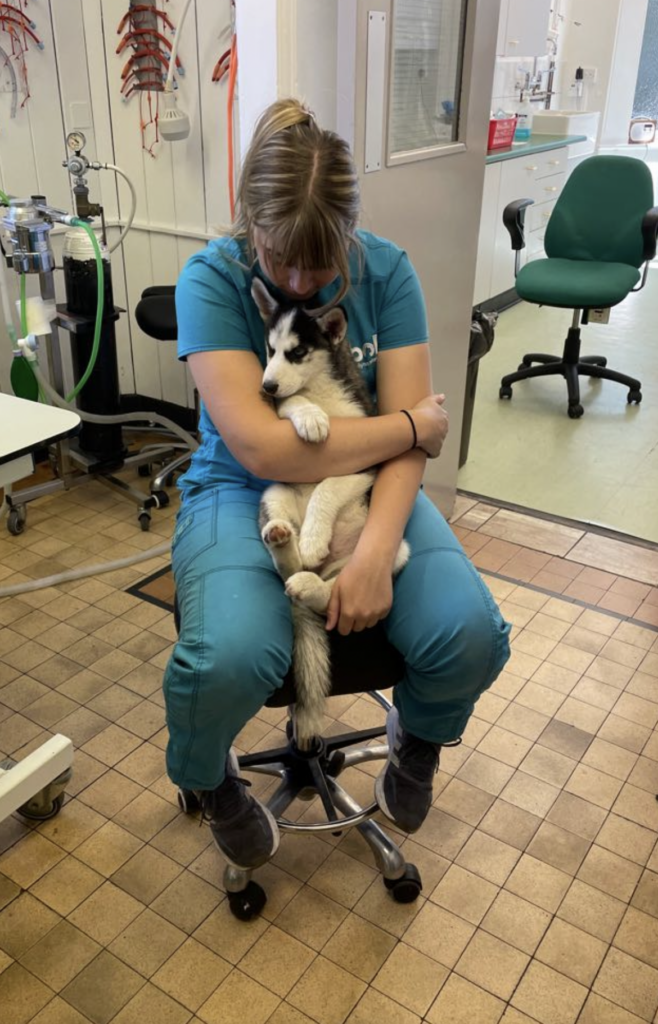BVNA are currently running a campaign specifically aimed at VCAs – recognising the vital role they have as part of the practice team, as a profession in their own right. We’ll also be discussing the wealth of transferable skills that VCAs have, along with the progression opportunities – which don’t always follow the “typical” route of working towards becoming a veterinary nurse!
In this blog we hear from Bethany Sergent, who completed her Level 2 VCA Diploma via an apprenticeship. Here, she discusses the role of the VCA and why they are so important in supporting the veterinary team.
Are you a VCA looking for more support? As the professional representative for veterinary nursing, BVNA are here for you too! Join us so your voice can be heard – more information about our Associate membership package can be found here; http://bvna.org.uk/membership/

“Hello, my name is Bethany Sergent – I am currently 22 years old and a qualified veterinary care assistant (VCA). After leaving high school in 2017, I started college and completed my Level 2 and Level 3 Animal Management qualifications. During this time, I worked as a manager at McDonalds – unsure on what I wanted to do with my career afterwards, but all I knew was that I was desperate to do something with animals.
“My twin sister had just become a registered veterinary nurse, and always talked about how amazing it was to work in the veterinary industry – that every day is different and how rewarding the work is. She persuaded me into doing a week’s work experience at the practice she worked in to see how I liked it. During this time, I fell in love with how different and interesting each day was, I was learning new skills and knowledge every single day. At the end of that week, I was offered an apprenticeship to do my VCA qualification and I instantly said yes! I started working full time at the practice and I’ve not looked back since.
“During my time at the practice over the last 2 years, I have completed my apprenticeship and am now a qualified VCA, I’m so proud of how far I’ve come and am eager to share my experience to show how vital the VCA role is within the veterinary practice.
“We are the key to making sure everything runs smoothly throughout the day. This involves making sure that things are properly sterilised and packed ready to be used for surgery, patients are given the best care before and after surgery, and ensuring the practice is at the highest standard of cleanliness. This is a very small insight on what I do, but it’s still very important.
“Many VCAs continue their career further by becoming a veterinary nurse. For any VCAs that don’t want to pursue this route, that’s okay! Don’t feel pressured into following the same path. I am so happy where I am currently, and I am even considering doing my Level 2 certificate to be able to support veterinary surgeons and nurses while they monitor animal patients under anaesthetic and sedation. Believe in yourself and you can achieve anything… To think two years ago I had no idea what I wanted to do with my career and now I feel so happy and confident within my job role, I hope this can help other VCA/ACAs feel confident as well!”
Thank you to Bethany for sharing her career story. If you’re a VCA and you’re passionate about showcasing the VCA role, we’d love to hear from you to get involved in our campaign. This could include taking part in online discussion panels, writing brief articles, or producing other resources to raise awareness of the VCA role – or any other ideas you may have of your own!
For more information, get in touch with us at bvna@bvna.co.uk.
